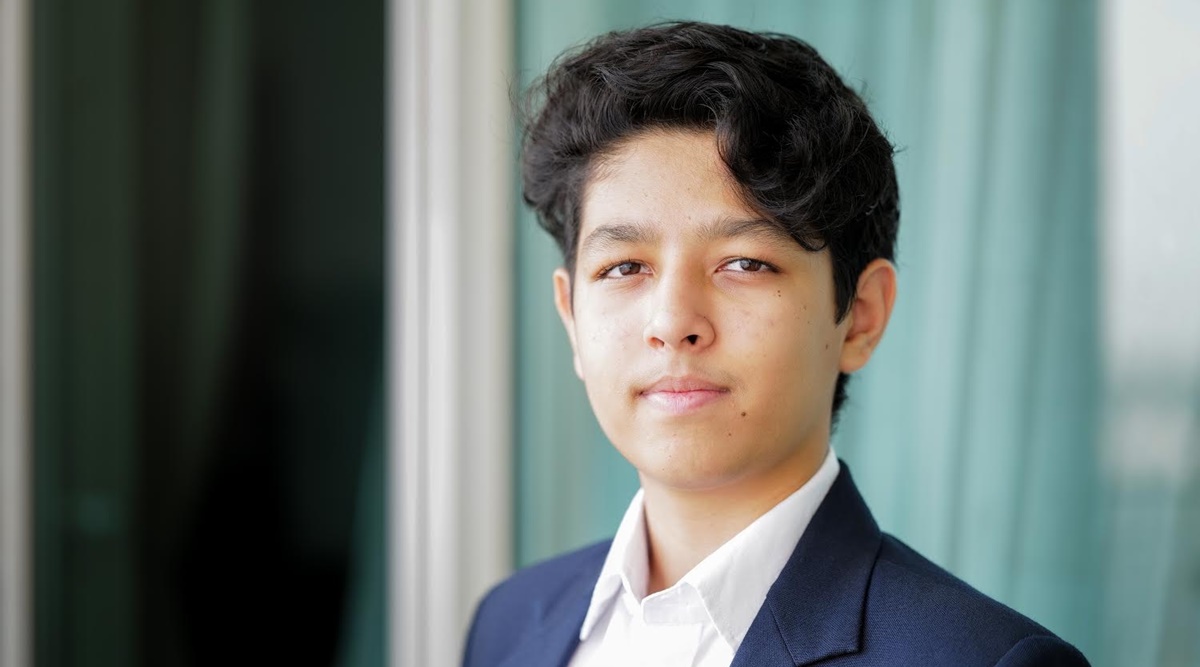 Vivaan Kabir, 17-year-old has founded an advocacy group South Asian Youth X-Change which has over 140 student members. (Photo: Vivaan Kabir)
Vivaan Kabir, 17-year-old has founded an advocacy group South Asian Youth X-Change which has over 140 student members. (Photo: Vivaan Kabir)Strengthening principles of equality and equity, decriminalisation of homosexuality, preservation of democratic rights, the safety of women, misinformation and fake news, global warming, climate change and cross border tensions are some of the issues listed by a group of South Asian students on what troubles them about the region. These are some of the issues discussed in an online summit that aimed at diverse conversations between teenagers in South Asia — school students from the eight SAARC countries — Afghanistan, Bangladesh, Bhutan, India, the Maldives, Nepal, Pakistan and Sri Lanka — engaging in discussions. MP Shashi Tharoor was the keynote speaker at the South Asian Youth X-Change Summit.
“The political decisions today are mostly focused on the present, and not for the future,” says Karma Tashi Dendup, class XI student at ELC High School in Thimphu. “In South Asia, there is a lack of acceptance of a youth discourse but also a lack of engagement among the youth. I think many of us are apathetic to politics and are either too afraid or not empowered to be engaged and take active stances,” says Seravi Victoria Harris, a student of Lower Sixth Form at Colombo’s Elizabeth Moir School.
According to Myra Zia Ansari, 17, an A-Level student at Islamabad’s Westminster Academy, there is a lack of discourse between people, and especially youth of South Asia. “In nations where children are so similar and smart, why are they not interacting and sharing their perspectives more? Take India and Pakistan, we all stem from one place, the subcontinent. Our history is our identity, yet we don’t even know what life is like for someone across the border. Political instability, lack of infrastructure, propaganda are just a few of the things that trouble me,” she says.
 South Asian Youth X-Change which has over 140 student members from 45 schools. (Photo: Screengrab)
South Asian Youth X-Change which has over 140 student members from 45 schools. (Photo: Screengrab)
Vivaan Kabir, the 17-year-old class XII student of Mumbai’s Oberoi International School, has founded an advocacy group South Asian Youth X-Change which has over 140 student members from 45 schools in the region. According to Vivaan, students pitched certain ideas and innovations that they felt had the potential to make a change in the region. “Those ideas that were collectively favoured were then developed collaboratively by students of all countries, and materialised in written clauses, that will be put into our proclamation,” he says. The proclamation is currently being reviewed by the Institute of Peace and Conflict Studies and will be presented to leaders at the SAARC, the UN and foreign affairs ministries of the eight countries.
 MP Shashi Tharoor was the keynote speaker at the South Asian Youth X-Change Summit. (Photo: Screengrab)
MP Shashi Tharoor was the keynote speaker at the South Asian Youth X-Change Summit. (Photo: Screengrab)
“The inevitability of failing governments, climate and alliances inspired me to start doing my part, and joining hands and minds with fellow young leaders was a clear path for breaking barriers between the people of countries that are pitched against each other… While we’re told to be hopeful, I’m unable to see any of the much-needed cooperation, peace or unity that should be inspiring for someone of my age. If we, Gen Z, have to change the world, why not start now, and why not, at least, start thinking?” he says.
Vivaan points out a recent observation by the World Bank that South Asia is the least cooperative region in the world. “This is despite holding one-fifth of the world’s population within its borders… Generation Z will not carry on the dogmatism and the divide in today’s international relations,” he says.
“The world around us today, especially in the international and regional context, is defined by bigotry and hate… People-to-people contact is what I want to advocate. They need to realise that countries aren’t their military, countries aren’t their presidents and prime ministers; countries are the people, and to know the country, you should connect with the people,” says Vivaan.
📣 The Indian Express is now on Telegram. Click here to join our channel (@indianexpress) and stay updated with the latest headlines
For all the latest Lifestyle News, download Indian Express App.